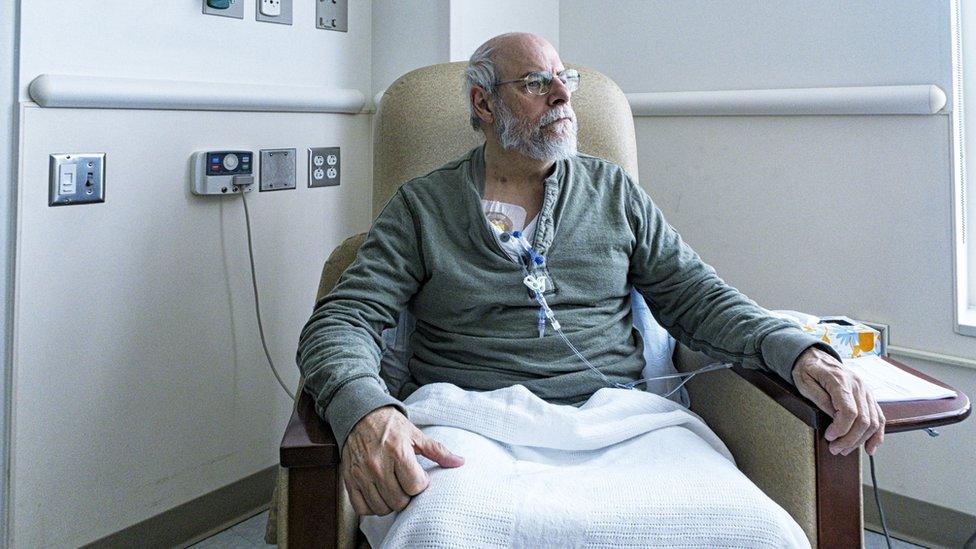Warning that Scots cancer cases to rise by a quarter
- Published
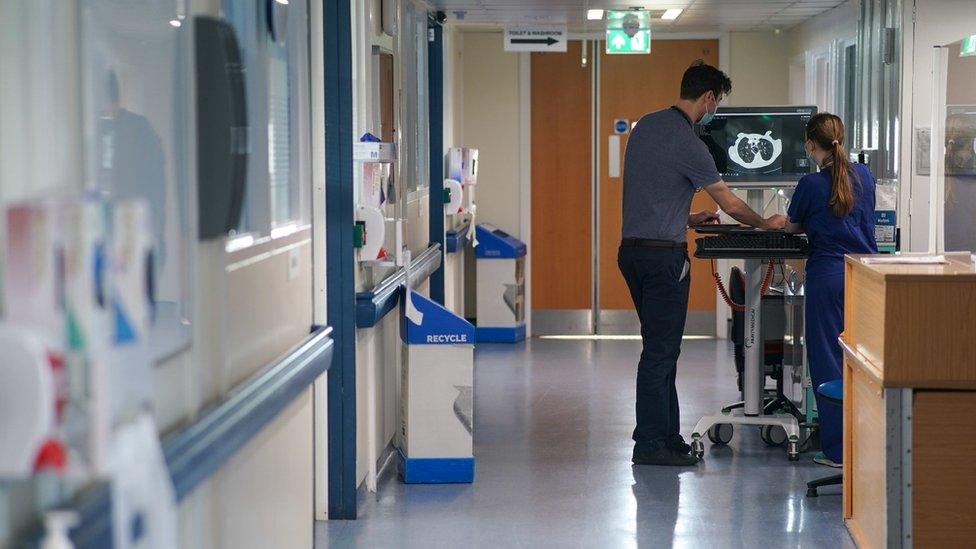
Cancer cases in Scotland could reach 42,000 a year
The number of people in Scotland diagnosed with cancer will rise by a quarter by 2040, according to new data from Cancer Research UK.
Deaths are predicted to increase by 17% despite many cases being preventable.
Cancer Research UK is calling on the Scottish government to take "bold action to prevent more cancers".
Ministers say a new 10-year strategy will look at improving patient journeys from prevention and diagnosis through to treatment and post-treatment care.
Experts say the main driver behind the increase is people living longer, as older people are more prone to developing illnesses.
But lifestyle factors, such as smoking and obesity, cause the majority of preventable cancers.
Cancer Research UK senior external affairs manager for Scotland Andy Glyde said the country's aging population means cancer cases are only going to increase.
"Every year we will see about 42,000 people diagnosed with cancer," he told BBC Radio's Good Morning Scotland programme.
He said four in 10 cancers are preventable, with smoking and obesity rates being the two main causes.
"Those alone are responsible for thousands of cancers in Scotland every year," he said.
"If we can bring down smoking trends further, if we can reverse the trend in obesity, we could definitely be preventing many of those cancers from even happening."
In 2018, a total of 2,200 cancer cases in Scotland were related to obesity.
Increasing cancer rates are also linked to poverty, with numbers rising in deprived areas.
Mr Glyde warned that the NHS will need to be prepared to deal with the scale of the problem.
"We know that the NHS is treading water at the moment," he said.
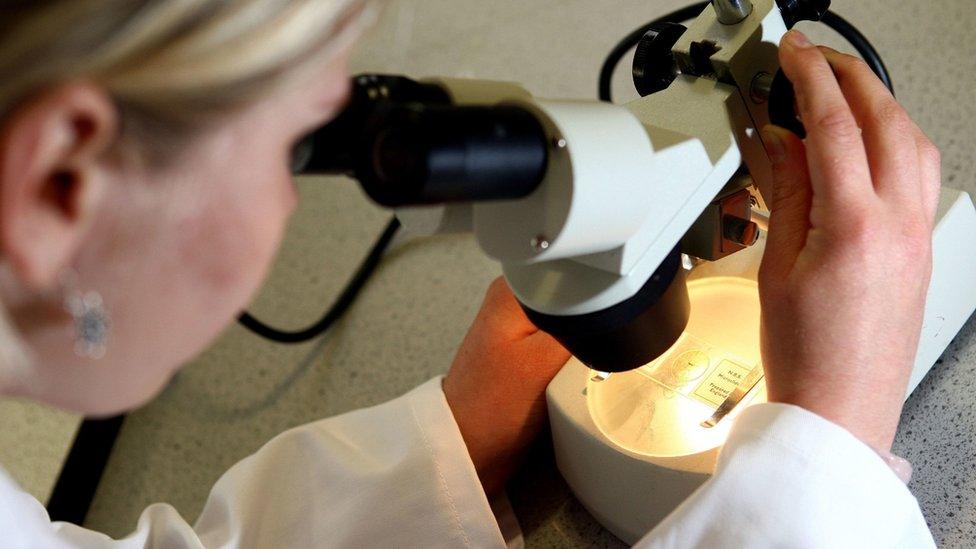
There are vacancies for cancer staff across NHS Scotland
"It's been through a very difficult winter, it's still reeling from the pandemic, and it's not helped by the fact that there are so many vacancies in the NHS staff that detect, test, diagnose and treat cancers.
"We need to take action on that now in order to be dealing with tomorrow's challenge."
Linda Bauld, professor of public health at the University of Edinburgh and former cancer prevention adviser for Cancer Research UK, said more should be done to prevent cancers.
"We need to start early in life and look at avoiding some of the risk factors that will make people more at risk of developing cancer in later life," she said.
"[But] some cancers are not preventable.
"For example, prostate cancer - we know there's not a clear pathway at the moment to prevention."
She said a significant number of some of the most common cancers, such as bowel, lung, and breast cancer, could be prevented by addressing lifestyle issues.
The chief executive for cancer support charity Maggie's Centre, Laura Lee, told BBC Scotland that caring for patients goes beyond diagnosis and treatment.
"Three out of five people at Maggie's will talk about the mental challenge of going through a cancer diagnosis being more significant than the physical effects," she said.
She said that centres were already seeing an increased demand in recent years.
The charity started in Edinburgh in the 1990s and aims to help people from diagnosis to post-treatment.
They also encourage patients to introduce healthy lifestyles in the lead up to treatment.
Ms Lee added: "With good and ongoing support, people can make really positive adjustments that can help benefit their survival."
In a statement, the Scottish government said: "While more people are being diagnosed with cancer, more people are also being cured and living longer with the illness, thanks to the many new and established treatments now available.
"We are determined to ensure cancer is diagnosed as early as possible, and the new 10-year cancer strategy, due to be published in Spring, will look at improving patient pathways from prevention and diagnosis through to treatment and post-treatment care."
- Published26 January 2023
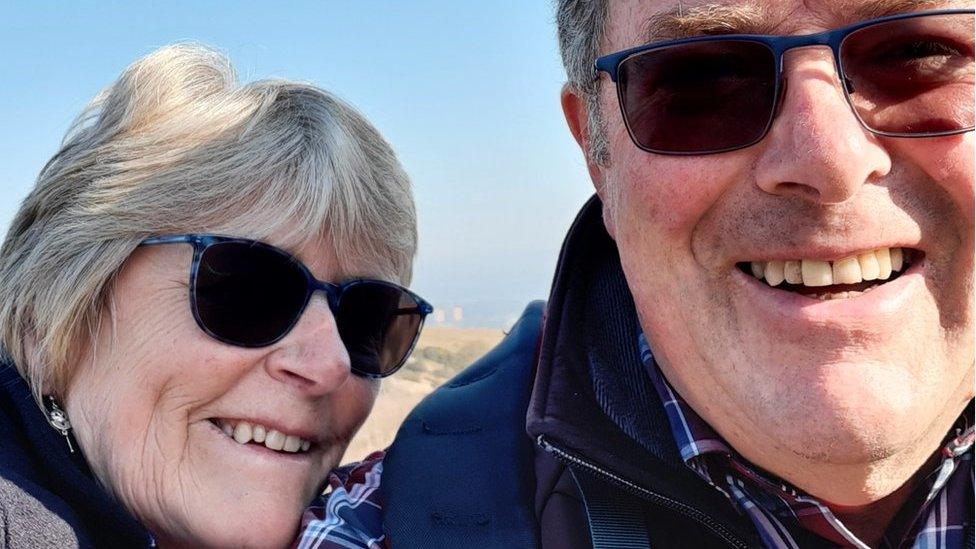
- Published28 June 2022
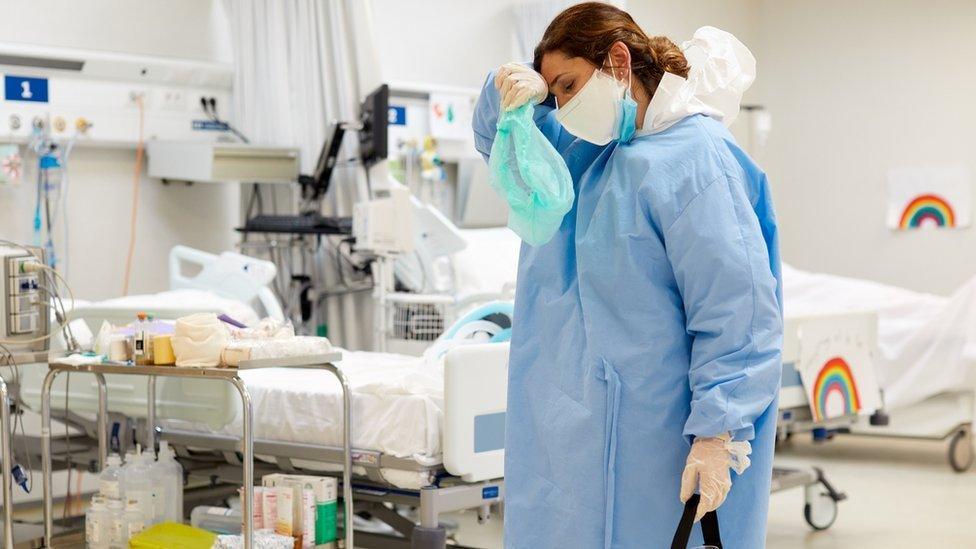
- Published28 November 2022
